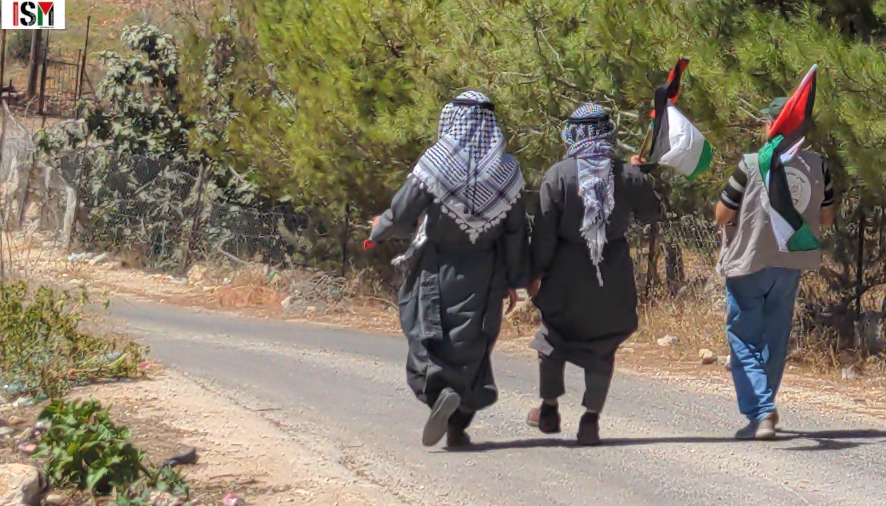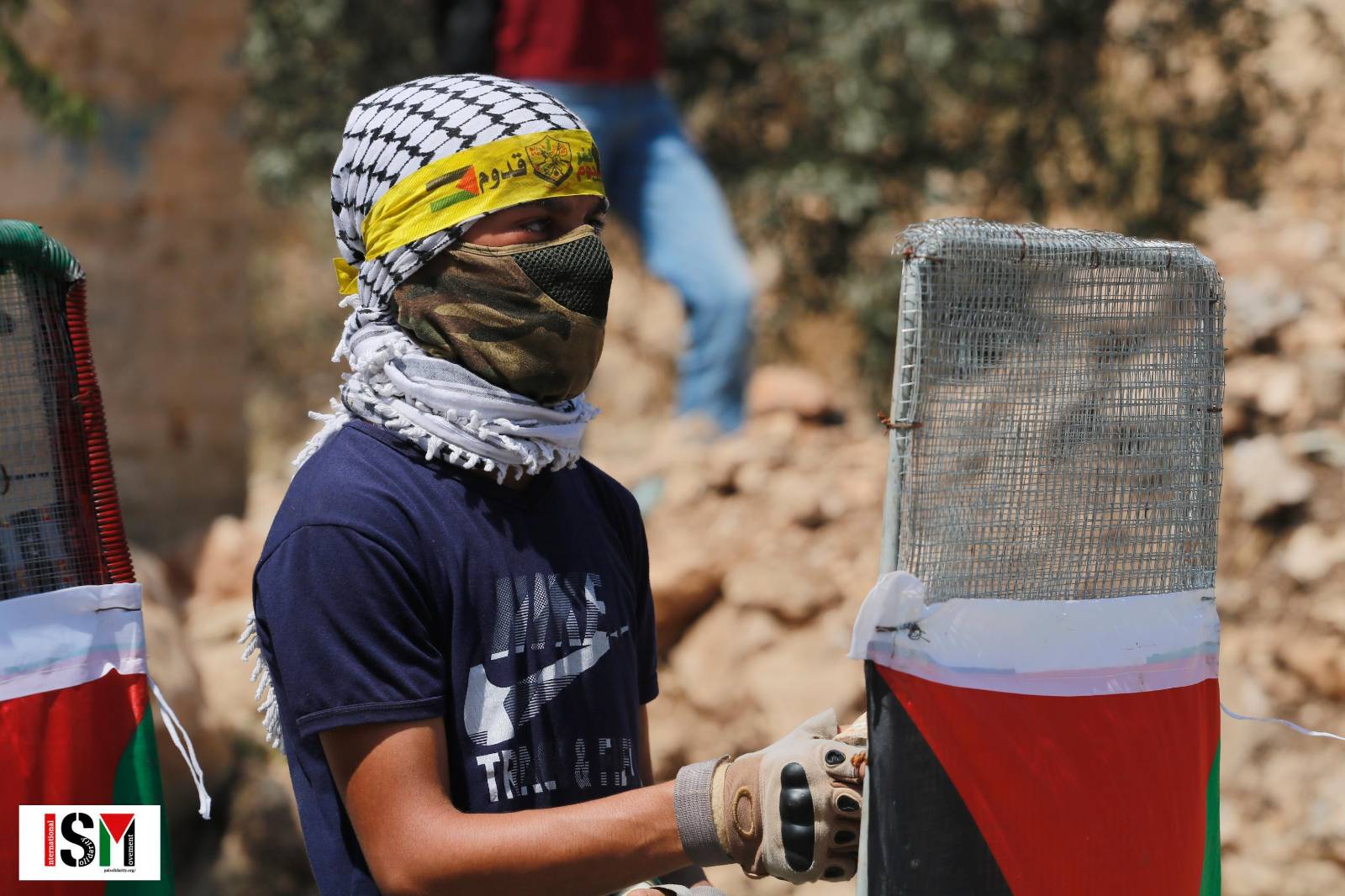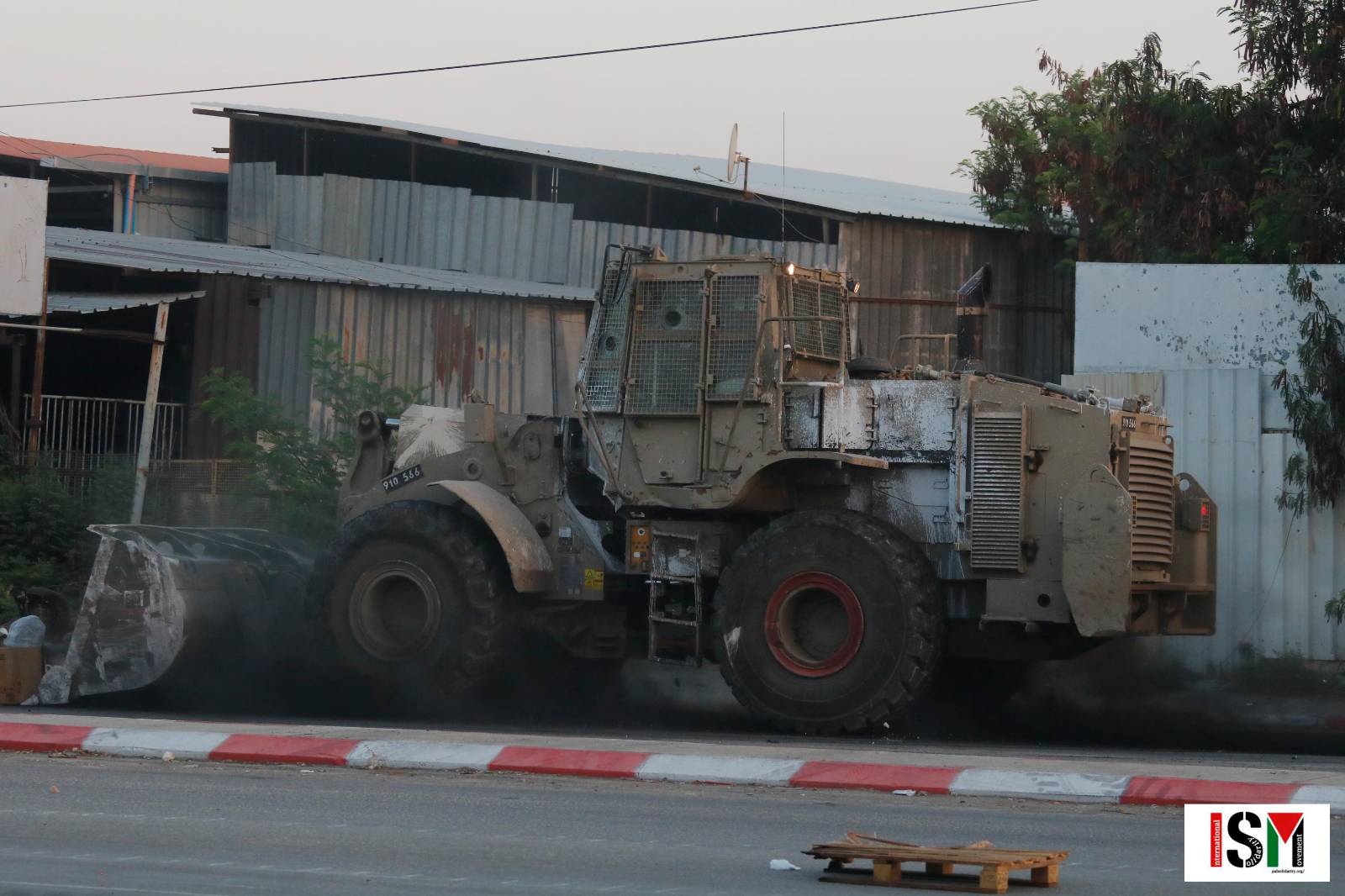Category: Reports
-
Palestinians in Qaryut reassert their right to visit their spring, despite IOF violence
On Friday 15th of September the people of Qaryut – a village between Nablus and Ramallah – held a demonstration reasserting their rights over the village spring. The village is close to the illegal settlements of Eli and Shilo, and every Friday settlers come to wash in the spring. This is a clear act of…
-
Report on the weekly protests in Kafr Qaddum
The Palestinian village of Kafr Qaddum is located 13 kilometres west of Nablus and has a population of roughly 4300 citizens. Eleven thousand dunams of the village’s land (roughly 52% of the total area) are part of area C, under full control of the Israeli Occupation Forces. Saqerobeed, the former mayor of the village told…
-
Steadfastness in the face of occupation: A report on the attack on Nur Shams camp
Photos and text by Diana Khwaelid for ISM Residents of Tulkarm – and in particular the Nur Shams refugee camp – woke up to a sad morning on Tuesday 5th of September. Dozens of military vehicles, troop carriers, and three Caterpillar D9 military bulldozers accompanied by an Israeli police vehicle stormed the Nur Shams refugee…



